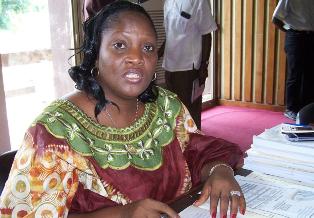Editorial: Supreme Court Contempt Charges: Learning Experience for Editors
On Wednesday, February 29, 2012, the Supreme Court of Liberia summoned three local dailies with their respective legal counsels at the Temple of Justice in Monrovia for ‘contempt’. According to the Court, the three newspapers accused four associate justices of the Supreme Court bench of diverting US$1 Million Dollars.
They were reported to have divided the money provided by President Ellen Sirleaf to help the judiciary purchase vehicles for judges of the lower courts, as well as magistrates. Chief Justice Johnnie N. Lewis, who the papers claimed to have refused to accept his share of the amount, was not however present when the editors appeared before the honorable body for hearing.
At the hearing, the 3 dailies claimed to have spoken with insiders at the judiciary for reliable information before publishing their stories. One of the justices, in remarks during the induction ceremony of elected officers of the National Trial Judges Association of Liberia (NTJAL), condemned the reports, noting that the amount was actually US$1.2 Million intended to increase salaries of judges and magistrates, among others and not to purchase vehicles as reported by the newspapers.
The Editors of the News newspaper and Daily Graphic accordingly appeared before the high court that morning, represented by Counsel Saymah Syrenous Cephus. The Editor of FrontPage Africa did not appear with a counsel because, according to him, he could not find a lawyer here who understands media laws and ethics.
Associate Justices Francis S. Korkpor, Kabineh M. Ja’neh, Jamesetta Howard- Wolokollie and Phillip A. Z. Banks were all in attendance.
Asked as to how they obtained such information, as well as how authentic was the information in terms sourcing, two of the three editors (except FrontPage Africa’s) regrettably admitted miserable failure to meet ethical and professional requirements in the story. Such regrets were accompanied by an apology and a commitment to do a retraction at the whims and caprices of the associate justices.
While we subscribe to the fact that ‘no man is infallible’, we must always be guided by the principles of good journalism during our publications and news broadcasts to ensure that we are not reduced to ‘laughing-stocks’. That is why editors must always cross-check information provided by reporters to avoid problems such as the one encountered by our colleagues. We must always be cognizant of the political ‘bubby-trap’ before us because of the critical stories, editorials and articles that we publish in our respective newspapers.
While our critical and investigative publications may be in the general interest of the nation, those about whom these publications are reported intentionally misinterpret our efforts as undermining to their economic and political existence, and would always want to get even with us. This is why we urge us all to exercise the highest degree of care and restraint in the exercise of our professional duties (by even interviewing our reporters on the basis of the stories they author or even thoroughly follow up with news sources) before the final job is done.
[bsa_pro_ad_space id=1]
Again, it is our fervent hope that what happened to our colleagues at the Supreme Court would be a learning experience for us all.




















